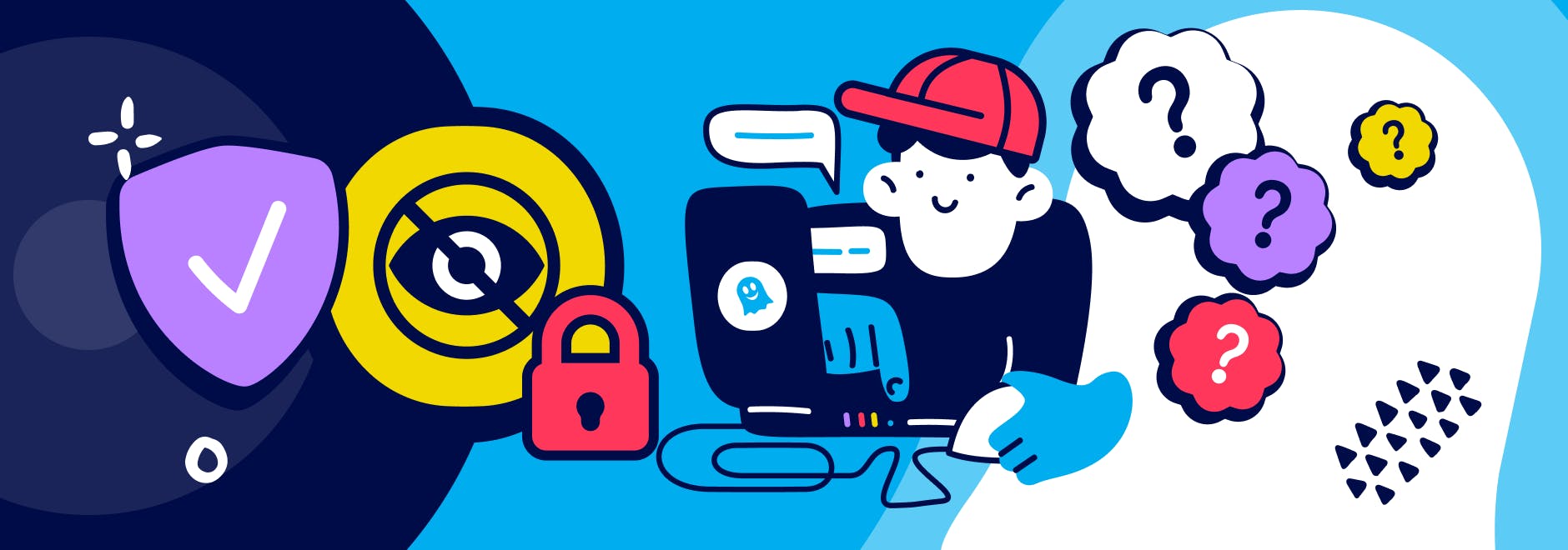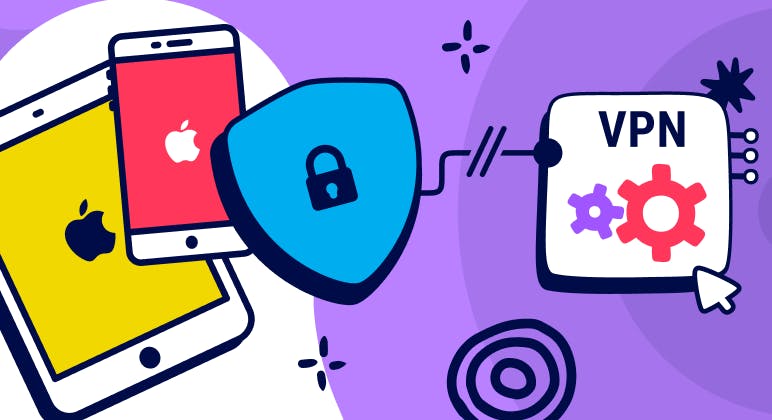Guide
How to Teach Children about Online Data Privacy
Key Points:
- Teaching children about online data privacy is essential for their rights, safety, and future.
- Parents and educators can use strategies such as open communication, education, safety practices, and privacy settings to teach children about online data privacy.
- Ghostery is a browser extension that helps children protect their online privacy by blocking ads and trackers.

How to Teach Children about Online Data Privacy
Online data privacy is a crucial topic for everyone, but especially for protecting children on the internet. Children are growing up in a digital world where they are constantly exposed to online platforms, apps, and services that collect and use their personal information. While the internet offers many benefits and opportunities for learning and entertainment, it also poses significant challenges for how parents can protect their kids online.
Children may not fully understand the implications of sharing their personal information online, such as their name, age, location, photos, or interests. They may not realize that their online activities can be tracked, monitored, and exploited by third parties, such as advertisers, hackers, or even predators. They may also encounter inappropriate or harmful content online.
So, it’s essential to teach children about online data privacy and how to protect themselves online. We will discuss some key strategies for teaching children about online data privacy and introduce Ghostery as a solution for enhancing their online privacy and security.
Understanding Online Data Privacy for Children
Why Online Data Privacy Matters for Children
Children have the right to express themselves online without being subjected to unwanted or harmful interference. They also have the right to control their personal information and how it is used online. However, these rights are often violated or ignored by online platforms and services that collect and use children’s data for various purposes, and children don’t know about these topics.
Online data privacy is also important for kids because it affects their safety. Children face many dangers online, such as cyberbullying, identity theft, phishing, malware, or sextortion. These dangers can affect their health, and some online platforms and services may expose children to inappropriate content that can influence their behavior or values.
Moreover, online data privacy can affect your child’s future. Kids' online activities can leave a digital footprint that can have long-term consequences for their reputation or opportunities. For example, some employers or colleges may use social media or other online sources to screen applicants based on their online profiles or posts. So, children need to be aware of the potential impact of their online actions and choices on their future.
Kids’ Privacy in the United States
In the U.S., state policymakers are focusing their efforts on data privacy laws and children's online safety regulations in 2023, with several states passing new laws in these areas. However, there has been less action on content moderation and competition issues.
While federal lawmakers have pushed for national legislation, the states are increasingly setting the agenda through their own laws.
Experts note that states are acting as “laboratories of tech policy reform” where progress is being made faster than at the federal level.
Common Online Privacy Threats for Children
Some of the common online privacy threats that children face include:
- Online predators: These are people who use the internet to lure or groom children for sexual or other abusive purposes. They may pretend to be someone else or share similar interests with children to gain their trust and manipulate them. They may also ask children to share personal information or photos or meet them in person.
- Data breaches: These are incidents where hackers or unauthorized parties access and steal personal information from online platforms or services. They may use this information for identity theft, fraud, blackmail, or other malicious purposes.
- Inappropriate content: This is content that is harmful or not suitable for children based on their age or maturity level. It may include violence, pornography, hate speech, extremism, or misinformation. Some of this content may be deliberately targeted at children or disguised as child-friendly content.
Key Strategies for Teaching Children about Online Data Privacy
There are several strategies that parents and educators can use to teach children about online data privacy and how to protect themselves online. Some of these strategies are:
Open Communication and Trust
One of the most important strategies is to establish open communication channels with children and build trust with them. Parents should encourage children to talk about their online experiences and express their feelings and concerns. They should also listen to children’s opinions and perspectives and respect their choices and preferences.
We should also create a safe and supportive environment where children can ask questions and seek help without fear of judgment or punishment. They should also provide honest and accurate information about online data privacy and the risks and benefits of using the internet.
Educating about Personal Information
Another key strategy is to teach children about personal information and what they should never share online. This includes:
- Name
- Age
- Address
- Phone number
- Email address
- School name
Other information to consider is:
- Photos
- Videos
- Location
- Interests
Remember: Personal information is any information that can identify a person or reveal something about them.
Parents and educators should explain to children why they should not share these types of information online with strangers or people they do not know well. They should also teach them how to recognize phishing attempts or other scams that may try to trick them into giving away their personal information.
Online Safety Practices
Another essential strategy is to teach children some online safety practices that can help them protect their privacy and security online. Some of these practices are:
- Set strong passwords: Children should use passwords that are long, complex, and unique for each online account. They should also change their passwords regularly and never share them with anyone.
- Use privacy settings: Children should use the privacy settings on their devices and online platforms and services to limit who can see or access their personal information and online activities. They should also review and update their privacy settings periodically.
- Practice caution online: Children should be careful about what they post, share, or download online. They should also avoid clicking on suspicious links or opening attachments from unknown sources. They should also report or block any inappropriate or abusive content or behavior they encounter online.
Privacy Settings and Parental Controls
Another helpful strategy is to enable privacy settings on the devices that children use and use parental control tools to monitor and manage their online activities. Privacy settings can help prevent unauthorized access to children’s devices and data. Parental control tools can help filter or block inappropriate or harmful content, limit screen time, or track location.
We should also involve children in the process of setting up and using these tools and explain the reasons and benefits of doing so. They should also respect children’s privacy and autonomy and avoid excessive or intrusive monitoring.
Ghostery as a Solution
One of the solutions that can help teach children about online data privacy and protect them online is Ghostery. Ghostery is a browser extension that enhances privacy and security by blocking trackers, ads, and malvertising. Ghostery also provides transparency and control over the online data collection and use practices of online platforms and services.
What is Ghostery?
Ghostery is a browser extension that allows users to see and block the trackers that follow them around the web. Trackers are scripts or codes that collect and use users’ personal information for various purposes, such as advertising, analytics, or social media. Trackers can affect a web browser’s privacy, performance, and experience online.
Ghostery helps protect your privacy online by blocking these trackers from accessing or storing their personal information. Ghostery also helps users improve their performance and experience online by speeding up page loading, reducing bandwidth usage, and eliminating clutter.
Key Features of Ghostery for Children
Ghostery can help children protect their online privacy with:
- Tracking Protection: Ghostery protects users from advanced tracking techniques that may bypass traditional blocking methods. Anti-Tracking anonymizes users’ personal information to prevent trackers from identifying or profiling them.
- Ad-Blocking: Ghostery blocks annoying or intrusive ads that may compromise users’ privacy or security. Ad Blocking removes ads from web pages and replaces them with blank spaces or custom images.
- Never-Consent: Ghostery automatically chooses to reject tracking in the cookie consent pop-ups that interrupt your browsing and want you to accept website tracking.
How to Install Ghostery for Kids
You can install Ghostery by going to our website and clicking Get Ghostery.
Promoting Safe Browsing with Ghostery
Ghostery helps children maintain their privacy online by giving them control and choice over their online data. Our browser extension allows children to see and block the trackers that follow them around the web and collect their personal information.
Ghostery also blocks annoying ads and pop-ups that may compromise their privacy or security.
Children can enjoy a safer and more private browsing experience online by using our tracker and ad blocker. Plus, it’s easy to install.
Final Thoughts
Online data privacy is an important topic for children growing up in a digital world. Parents have a responsibility to teach children about online data privacy and how to protect themselves online. Some of the key strategies for teaching children about online data privacy are:
- Open communication and trust
- Educating about personal information
- Online safety practices
- Privacy settings and parental controls
One of the solutions that can help parents and educators teach children about online data privacy is Ghostery.
Ghostery is a browser extension that enhances privacy by blocking trackers and ads. We also provide transparency and control over the online data collection and usage practices of online platforms.
Get in touch if you have any questions. We’re always happy to help.

